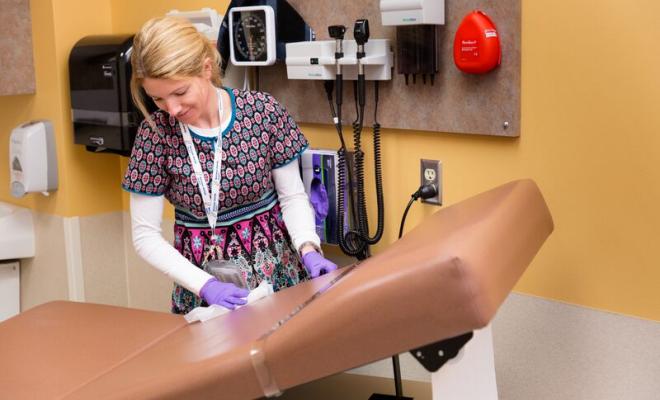MRSA and CF
Methicillin-resistant Staphylococcus aureus may worsen lung disease. A 2010 study, published in the Journal of the American Medical Association (JAMA), looked at MRSA lung infections in people with cystic fibrosis. The study found that having MRSA in your lungs for longer than two years might affect survival. However, there is much more to learn about MRSA. This includes how it affects people with CF and the best treatments for MRSA lung infections.
How Do You Get MRSA?
MRSA can spread from one person to another through casual contact or through contact with objects that have become covered with the
If MRSA is in the lungs, it can be spread in tiny drops of liquid when a person coughs, sneezes or laughs. It can also be spread from objects that touch the mouth.
If MRSA is on the skin, it can be spread through skin-to-skin contact with others, such as athletes playing football or wrestling.
Reducing the Risk
The best way to protect yourself or your child from MRSA is to use basic infection prevention and control practices, including the following:
- Keep your hands clean by washing often. Use soap and water or an alcohol-based hand gel.
- MRSA skin infections are spread mainly by skin-to-skin contact and touching surfaces that have come into contact with someone else's infection. This is why good hand cleaning is so important to avoid getting MRSA.
- Cough into a tissue. Throw it away. Then wash your hands thoroughly to keep germs from spreading.
- Avoid sharing personal items. These include items that come into contact with your mouth or bare skin, including:
- Cups
- Nebulizers
- Toothbrushes
- Towels
- Razors
- Cover skin scrapes or cuts with a clean dry bandage until healed.
- When using exercise equipment:
- Clean handholds, bars, control panels, and other equipment parts before and after use. Clean with a disinfectant or alcohol-based cleaner. Many exercise facilities provide materials so you can clean the equipment.
- Use a barrier. Place clothing or a towel between your skin and shared exercise equipment.
Diagnosing MRSA
Your CF care team can tell you if you or your child has MRSA in the lungs. MRSA may be one of the germs that the lab can detect by testing the
Most skin infections are boils and abscesses that are not serious. However, more serious infections do occur and these may be caused by MRSA. If you have a skin infection that is not healing, see your regular doctor as soon as you can.
If you or your child has MRSA, talk to your CF care team about whether or not you should notify your workplace or school.
Tracking MRSA Infections
Download the CF Foundation's latest Patient Registry Annual Data Report to see how many people with CF have MRSA. MRSA is resistant to multiple antibiotics, and lung infections caused by the bacteria often become long-term.
To address this serious problem, the CF Foundation has tracked the number of people with CF who were infected with MRSA for a number of years. The CF Foundation has also tightened its infection control guidelines to limit the spread of these bacteria.

